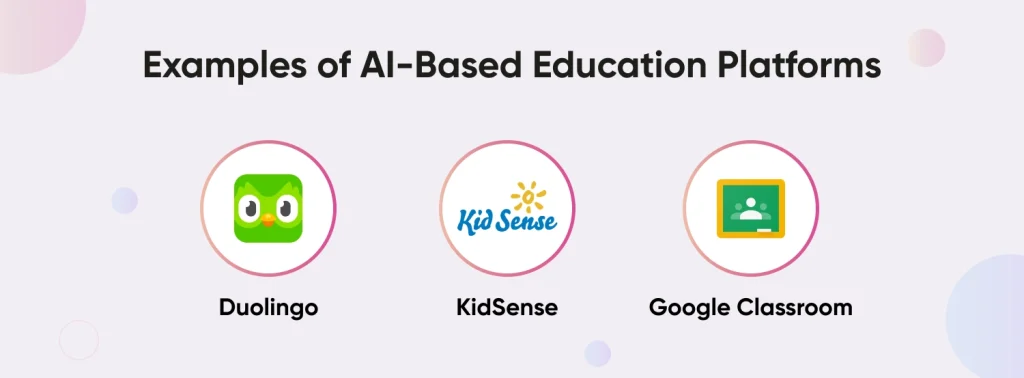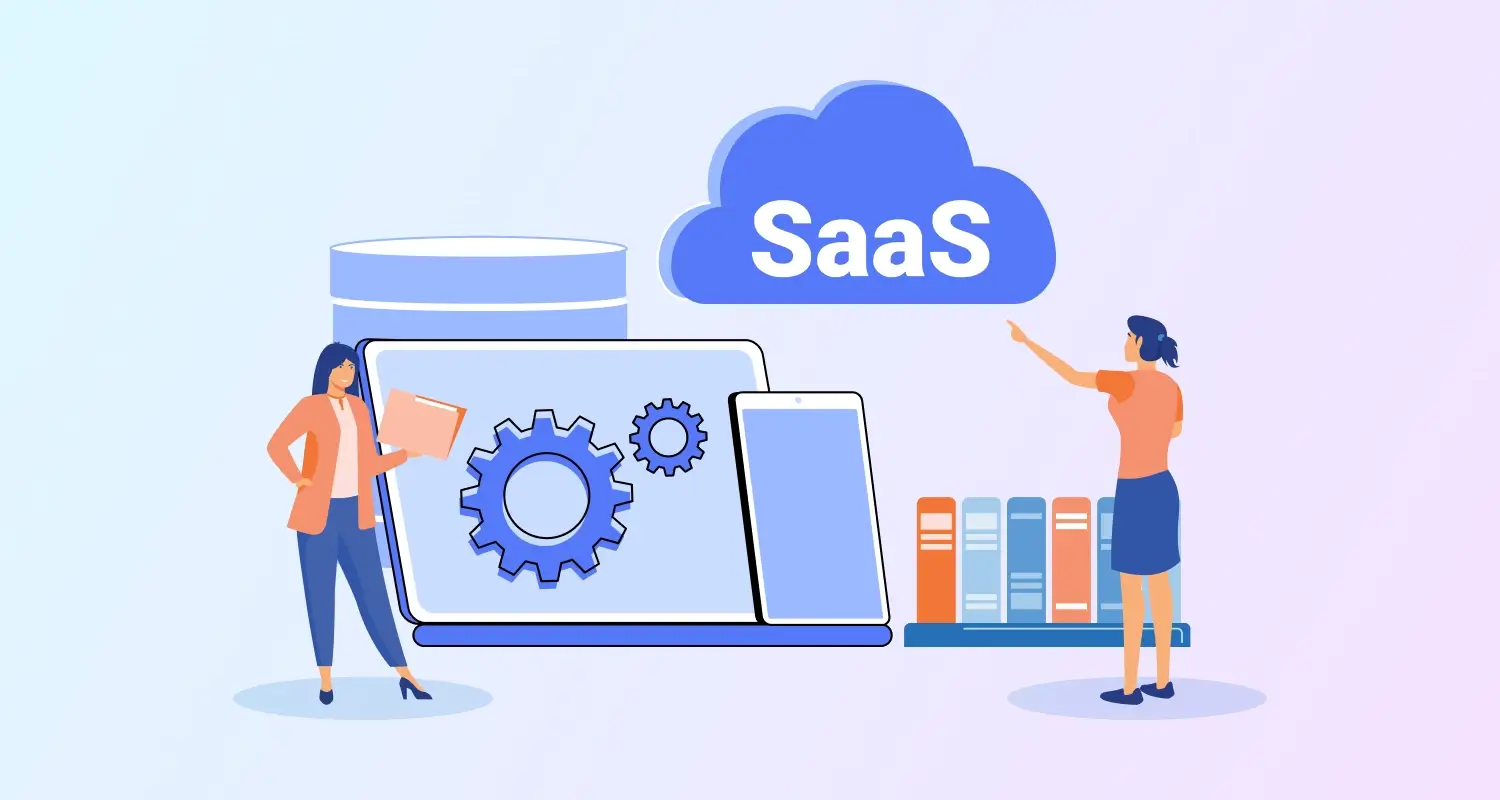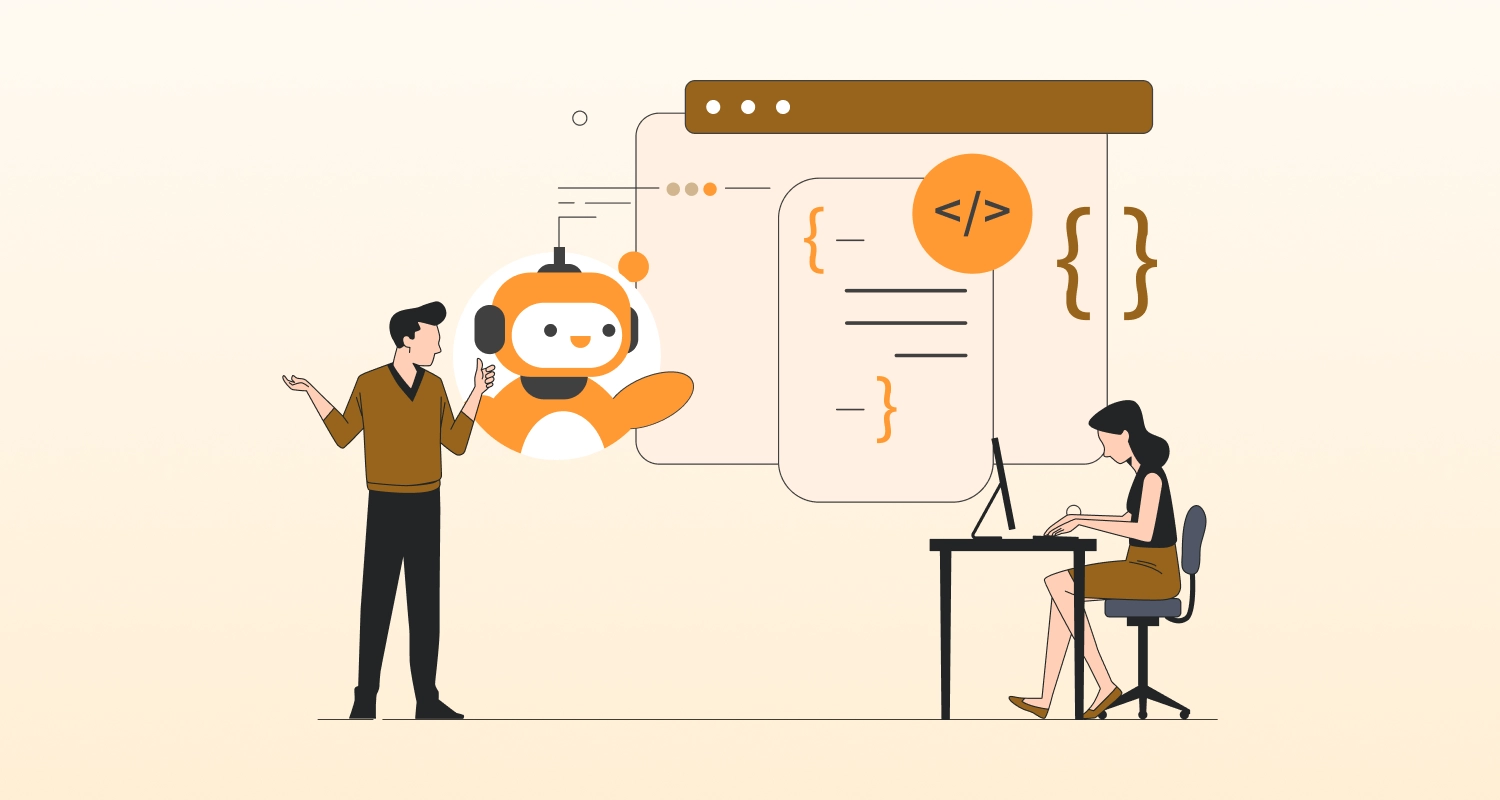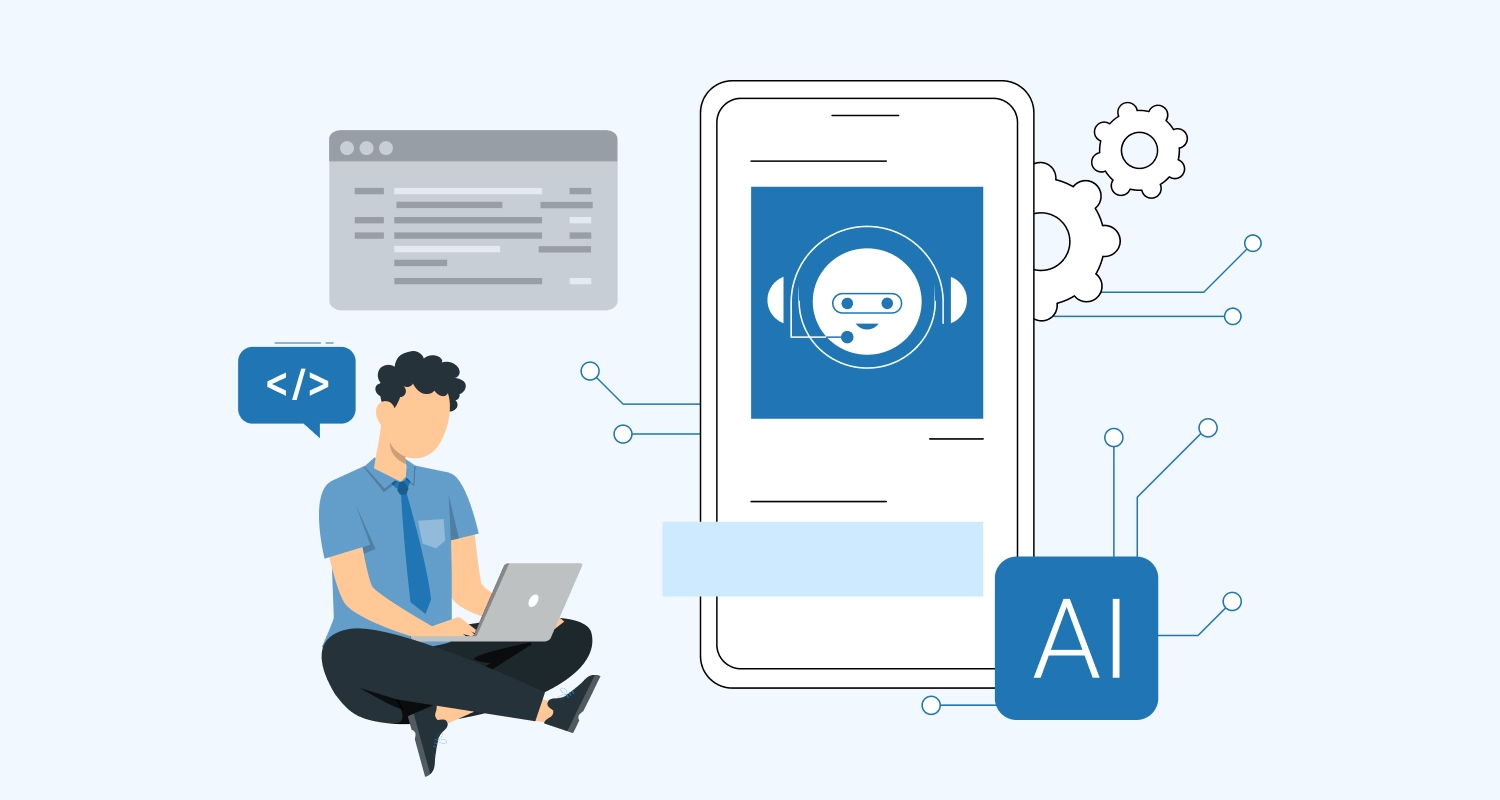Every day, Artificial Intelligence is becoming a vital part of our daily lives, transforming every industry. Hence, the education industry is not behind and is digging into the sea of AI to shape the industry and education for students, resulting in more students joining. AI in Education has made new opportunities available to learners of all ages.
As AI is increasingly incorporated into education, it has profoundly impacted how the industry operates.
eLearning solutions are even helping companies personalize learning experiences, identify knowledge gaps, and provide targeted feedback to students. With the integration of AI and education, the industry vertical has gained a new outlook on learning. Furthermore, the predictions for the overall market for e-learning seem to be positive. According to Statista, the e-learning market may reach $400 billion by 2026.
Several education institutions and startups are turning to AI software development services to adopt AI technology in the education industry and uncover the secret to providing students with easier access to learning.
Continue reading the blog to discover how AI in Education transforms the industry and learning.
About AI in Education
AI in education means integrating Artificial Intelligence into learning environments to improve and personalize learning. A wide range of educational content is being tailored with algorithms and data analysis to provide students with adaptive and individualized learning experiences.
Choose a development company to create an eLearning website to boost your educational businesses.
Promising AI in Education Statistics in 2025 and Beyond
AI has changed how teachers, students, and educational institutions look at education now. The following statistics provide insight into the use of Artificial Intelligence in education.
- Artificial Intelligence in education is forecast to bring in revenues of $25,000 million USD by 2030.
- Recent report estimates that AI will contribute $80 billion to the education market by 2030.
How Implementing AI in Education is Shaping the Industry?
Task Automation
Artificial Intelligence in education allows schools and teachers to automate repetitive, time-consuming administrative and management tasks, allowing them to devote more time to teaching. Furthermore, this improves the efficiency of tasks and reduces the possibility of human error.
Teachers must grade tests, appraise assignments and homework, fill out the necessary paperwork, compose performance reports, and coordinate teaching resources. Choose an eLearning software development company to embrace AI in your eLearning applications and automate tasks to ease the learning for students and reduce burdens from teachers.
Assessments and Grading Automated
Automation of grading and assessment has emerged as a valuable solution in education, providing quick, time-saving evaluation of student work. With Artificial Intelligence (AI), assessing multiple-choice quizzes and multiple-choice tests is now easier.
This technology allows teachers to analyze their students’ answers, check them against predefined answer keys, and give immediate feedback. This method saves educators valuable time preparing for classes, engaging students, and providing prompt feedback.
Even though AI can’t replace teachers, it can improve grading efficiency and accuracy, which benefits students and teachers.
Creating Smart Content
Teachers and experts can utilize Artificial Intelligence in schools together to create smart content that assists students in learning more efficiently and comfortably. The education industry can benefit from AI-driven content creation in so many ways.
- Generating digital lessons. Using Artificial Intelligence, it is possible to generate bite-sized learning materials, study material, and other content students can access at all times via a digital format.
- Frequent Content Updates. The use of Artificial Intelligence allows users to update the learning content regularly.
An Easy Way to Access Education
The impact of Artificial Intelligence on education is impressive, providing students with easier access to education. AI allows educators to make textbooks and resources digitally accessible to their students. This allows anyone around the world to have access to their favorite lessons. No longer is education confined to classrooms.
In addition, AI can also assist in translating lessons into other languages, thereby making education easier. With AI-driven Learning Management System Development, education is now accessible to anyone who wants to learn.
AI in Examinations
Artificial Intelligence software systems analyze exam and interview questions to detect suspicious behavior and notify supervisors. A webcam, microphone, and web browser are used to watch over individuals, and their actions are monitored for unusual activity.
The benefits of AI in education and applications surpass all expectations. That’s why EdTech companies and startups turn to AI applications that solve many user issues. So, it is high time for professional education professionals to integrate AI into educational activities.
Personalized Education
Every student comprehends information differently. Some students can pick up on things quickly, and some need more time. Traditionally, education was not individualized for every student. Here is where Artificial Intelligence in online education comes into play.
With Artificial Intelligence in education, customized AI applications in education can be tailored to meet the needs of each student.
Further, with technologies like machine learning in education, assistive technology adapts to students’ learning needs and eases their workload.
With AI-integrated games, personalized programs, and tools for maximizing efficiency, AI and education can meet individual educational objectives.

Virtual Classrooms
An online virtual classroom lets students and teachers communicate online and exchange information. The virtual classroom allows students to learn from quality teachers worldwide.
With virtual classrooms, it is possible to hold more classes at once than in a physical classroom.
As a result, the participation rate rises, and increased knowledge becomes available to the masses. The virtual classroom allows for immediate interaction since it is concurrent, allowing teachers and students to converse simultaneously. Unlike offline classrooms, virtual classrooms rely on pre-recorded materials such as presentations, slides, and videos.
Augmented Reality Chatbots
Chatbots, also known as conversational agents, are a convenient, effective way for teachers to enhance student learning. With chatbots, students can learn more effectively, faster, and engage more effectively. Students can use iPads or laptops to chat with bots that answer specific questions.
Chatbot tutors also analyze data if necessary, facilitating the learning process. Students can use educational chatbots to brush up on concepts before exams, ask questions about specific subjects, or clarify their doubts. Using chatbots, students can develop interactions similar to those between students and teachers.
Decentralized and Secure Learning Systems
Education has significantly advanced AI innovation, but data security, restricted data access, and outdated certification methods still pose challenges. While there are challenges, AI-driven decentralized solutions can positively contribute to education.
Personalized Data-Driven Feedback
Feedback plays a vital role in creating learning opportunities in the classroom and the workplace. Essentially, there is a difference between teaching that makes a difference and conveying information. Teaching effectively requires incorporating feedback continuously. A lot of importance is given to ensuring feedback is reliable. Thus, Artificial Intelligence in the education industry can provide reliable insights into daily reports by analyzing and assessing them carefully.
Data-driven feedback improves student satisfaction, eliminates learning bias, and highlights skills gaps. A student’s or employee’s performance record determines the kind of feedback they receive.
Examples of AI-Based Education Platforms

Here are some impressive examples of Artificial Intelligence in education that demonstrate how AI makes apps and platforms more engaging.
Duolingo
The language-learning platform Duolingo utilizes Artificial Intelligence to customize the learning process for each individual. Learners get to exercise their language skills, and based on how many errors they make, they are instructed to review certain words or idiomatic expressions.
KidSense
KidSense is an instructional AI platform explicitly designed for kids. Using Artificial Intelligence, this speech-to-text application allows children to note, review vocabulary, and take tests using their voices. A KidSense platform employs AI technology to translate words accurately.
Google Classroom
The Google Classroom software is renowned for assigning homework, collecting and grading classwork, and conducting various educational activities. This software grades students’ homework, gives them immediate feedback, and tips on overcoming difficult tasks.
Conclusion
Embracing Artificial Intelligence for Education only brings good to the students and teachers. By integrating AI into education, you are allowing the easy hand to students access to the learning material around the clock and ending the debate to chase the educators to clear doubts.
Embracing AI in the Education industry opens doors for educational institutions to bring in more students and bet on great success rates. If you want to embrace AI in your educational business, it is time to Hire Dedicated Developer in India and leave a great impression.
Frequently Asked Questions
How Can Artificial Intelligence Be Used in Education?
Artificial Intelligence uses advanced algorithms to transform the learning experience for students by bringing together personalized learning, automated grading, and round-the-clock assistance with a Chatbot to address related queries.
Is AI Shapes the Future of Education?
Yes, artificial Intelligence sets the stage for the future of education by eliminating all the gaps of long waiting times for one-to-one interaction with educators. With AI in education, learners can get one-to-one interaction with teachers at their fingertips.
From time to time feedback to complete study materials, Artificial Intelligence holds a promising future for the education industry.
What Can AI Do for Teachers?
AI benefits a lot to teachers as they do not have to repeat the same course again and again since the AI algorithm records every session and learners can access it in case of any concerns. There is more to it; AI allows teachers to analyze student performance and take measures to improve it. This helps in increasing the passing percentage for students.
Is Artificial Intelligence Appropriate for Schools?
By integrating AI into schools, students can receive more personalized learning experiences. By analyzing data and adapting to students’ learning styles, artificial intelligence algorithms can provide individualized recommendations and feedback.







